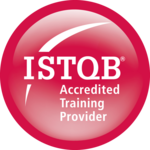
Seminars for Testing & Quality Assurance
The cornerstone of Software Quality Engineering.
Software Testing and Quality Assurance (QA) are critical components of Software Quality Engineering that ensure technical excellence and high software quality. Through the use of advanced testing methods, they systematically identify bugs, performance bottlenecks, and security vulnerabilities. Quality Assurance also includes adherence to standards and best practices in the development process to secure the consistency and reliability of the software. The technical depth of these methods allows for thorough validation of the software against defined requirements and specifications, optimizing the functionality, user experience, and security of the software products.
As part of Software Quality Engineering, Testing and QA not only support error minimization but also promote an agile development environment where continuous improvements are possible. This significantly contributes to the development of high-quality software that meets both current and future user requirements.
Investing in further training in software testing can pay off considerably. It can help to improve the quality of the software, increase customer satisfaction and ultimately reduce the costs associated with software errors.
How further training in software testing helps to prevent errors
Software errors can be costly, especially if they are only discovered after the product has been delivered. They can lead to downtime, loss of customers and even legal problems. This is why error prevention is a key aspect of software development, and this is where software testing training comes into play.
Sound training in software testing enables developers to identify and fix errors and problems early on in the development process. By improving their testing skills, they can ensure that the software works correctly and meets the specified requirements before it is delivered.
- Error detection: Good test training gives developers the skills to create effective test plans and strategies. They learn how to develop test cases that cover all aspects of the software and how to apply different testing techniques to find defects.
- Error analysis: Advanced training in software testing also teaches developers how to analyze the causes of defects and evaluate the impact of defects on the Software. This enables them to take the right corrective actions and prevent similar errors from happening again in the future.
- Improvement of test processes: Software testing training enables developers to improve their testing processes. They learn how to use testing tools and automation effectively to make their tests more efficient and ensure that no errors are overlooked.
- Error prevention: Finally, training in software testing can contribute to error prevention. By learning how to thoroughly test their software and effectively analyze and fix bugs, developers can help reduce the number of bugs that occur in the finished software.
Quality starts in the head - with trainings from Software Quality Lab
We offer the following seminars and trainings on this topic in the Software Quality Academy:
- ISTQB® Certified Tester - Foundation Level v4.0 (CTFL) [DE]
- ISTQB® Certified Tester - Foundation Level v4.0 (CTFL) [EN]
- ISTQB® Certified Tester - Foundation Level Extension: Agile Tester (CTFL-AT) [DE]
- ISTQB® Certified Tester - Advanced Level: Technical Test Analyst (CTAL-TTA) [DE]
- ISTQB® Certified Tester - Advanced Level: Test Analyst (CTAL-TA) [DE]
- ISTQB® Certified Tester - Advanced Level: Test Automation Engineering v2.0 (CTAL-TAE) [DE]
- ISTQB® Certified Tester - Advanced Level: Test Automation Engineering v2.0 (CTAL-TAE) [EN]
- ISTQB® Certified Tester - Advanced Level: Test Management v3.0 (CTAL-TM) [DE]
- ISTQB® Certified Tester - Advanced Level: Test Management v3.0 (CTAL-TM) [EN]
- ISTQB® Certified Tester – Specialist: Testen mit generativer KI (CT-GenAI) [DE] (VORANKÜNDIGUNG)
- ISTQB® Certified Tester – Specialist: Testing with generative AI (CT-GenAI) [EN] (PREVIEW)
- Code Review praktisch betrachtet [DE]
- Unit-Testen (Praxistraining) [DE]
- Testgetriebene Softwareentwicklung (TDD) [DE]
- Accelerate Testing with Generative AI (Practical Training) [EN]
- Schneller Testen mit generativer KI (Praxistraining) [DE]

Whitepaper
Embracing Software Engineering 2.0
How developers are evolving into interdisciplinary engineers



Consulting
Our associated consulting company Software Quality Lab GmbH provides you with comprehensive project support.
Testing and Test Automation are fundamental components of software development, ensuring software meet quality standards, perform reliably, and satisfy user requirements. Effective Software Testing and Test Automation systematically identify bugs, performance issues, and security vulnerabilities, contributing to more stable and functional software.
Key Benefits of Comprehensive Software Testing and Automation:
Early Bug Detection
Early identification of defects reduces the cost and complexity of fixing issues later in the development cycle.
Enhanced Product Quality
Rigorous testing helps to ensure that software meets functional and quality requirements, improving user satisfaction.
Risk Mitigation
Testing minimizes the risk of critical failures in production environments, protecting the integrity and security of the software.
Increased Confidence
Proper testing instills confidence in stakeholders by verifying that the product behaves as expected under various conditions.
The Role of Test Automation
Test Automation complements manual testing by improving efficiency and accuracy in repetitive tasks. Automated testing in Software Testing can quickly verify changes, providing fast feedback in continuous integration and continuous delivery (CI/CD) pipelines.
Advantages of Test Automation
Increased Testing Speed
Automated tests can be executed significantly faster than manual tests, enabling shorter development cycles and quicker software releases.
Reduced Long-term Costs
After an initial investment, test automation considerably reduces ongoing testing expenses, as repeated test executions incur substantially lower costs compared to manual testing.
Consistency
Tester automation delivers repeatable and consistent results, minimizing human error.
Resource Optimization
By using testing tools and test automation, the test team can focus on specification as well as exploratory and more complex testing activities.
Investing in robust software quality assurance ensures the delivery of high-quality software, reduces long-term costs, and enhances customer satisfaction.

